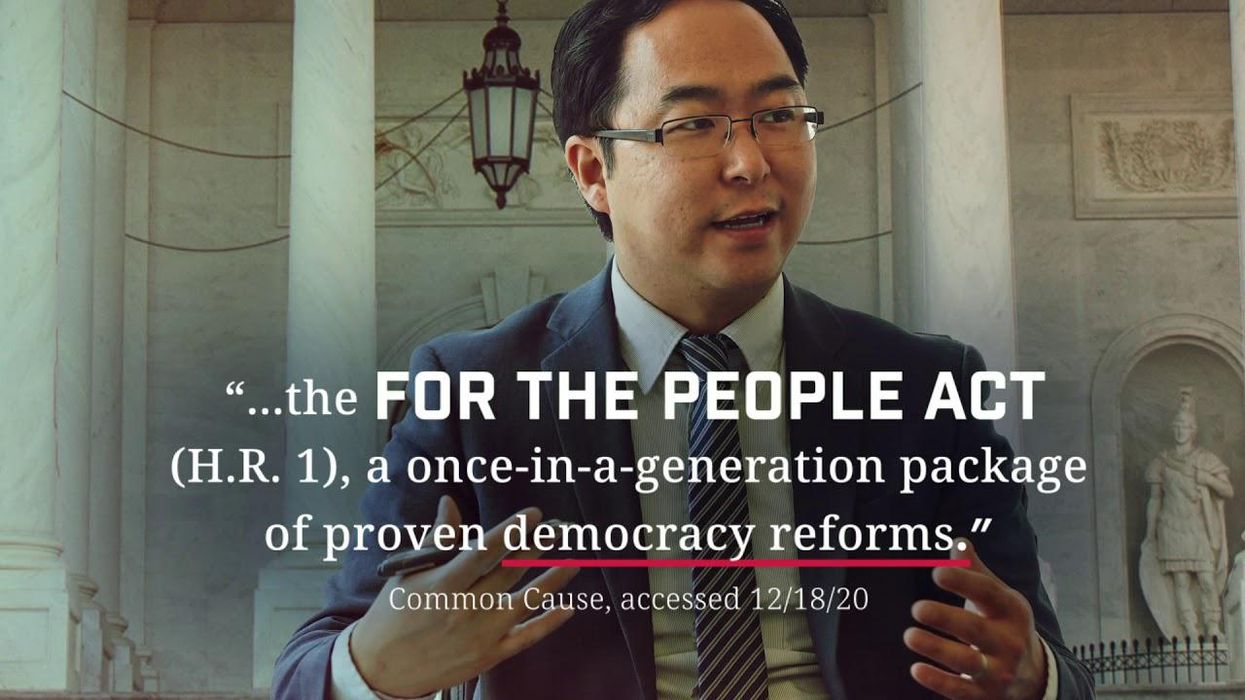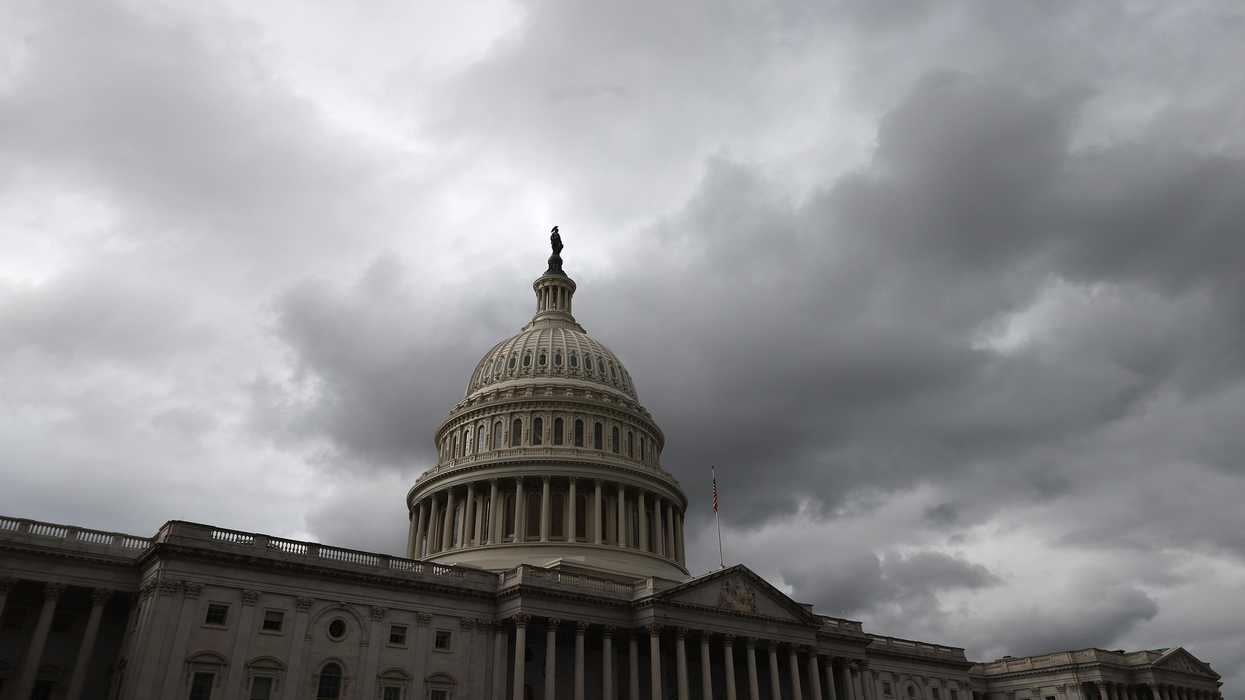The uphill climb to enact HR 1, legislation that's become the democracy reform Holy Grail, won't begin for weeks. But advocates have already decided they need to buck up and provide cover to their most loyal congressional allies — Democrats in the House.
Good-government and progressive groups will start spending $1.3 million on Wednesday to press 18 lawmakers, all of whom just survived intense and expensive re-election challenges, to continue supporting the measure. They all voted for the bill when it first passed two years ago.
The advertising campaign is a clear signal that lobbying for the measure will be sustained and expansive, on the one hand, but also the freshest of several signs that the legislation's prospects are very far from guaranteed.
Although federal lawmaking is now entirely under the control of HR 1's Democratic authors, the party's narrow margin of control in the House is the smallest since World War II — just five seats. If Republicans remain unified against the bill, which seems very likely to be the case, passage will require 98 percent buy-in from the other side.
To boost those prospects, the groups are buying 30-second TV ads and 15-second digital spots designed to reach into districts in 14 states that look to be purple again in 2022, not only because of redistricting but also because history shows the midterm after a new president takes office benefits the party out of the White House.
Assuming House passage, the package would then be at least assured of consideration in the newly Democratic Senate, where leaders have signaled their enthusiasm by labeling their companion bill S 1. But the legislation faces no chance of passage unless the party decides to curtail if not altogether eliminate the legislative filibuster in order to advance its priorities just on party lines.
That is a topic of intense debate within the Democratic ranks, and it won't be decided for a couple of months at the earliest — after final disposition of President Biden's top legislative priority, his $1.9 trillion economic rescue package. That bill could be enacted under special rules that don't require the usual 60 Senate votes.
The bill amounts to a sweeping overhaul of campaign finance, election and government ethics laws — including a new system of public financing and enhanced donor disclosures for presidential and congressional campaigns; mandates that politically independent panels control redistricting in every state; and national requirements for no-excuse voting by mail, stiffened election security, generous early in-person voting timetables and streamlined registration processes.
Democratic proponents argue that the complexities and vagaries in the state-by-state patchwork system — exposed to new scrutiny during an election in a nationwide pandemic and former President Donald Trump's lies about election fraud — should be significantly reduced in order to prevent voter suppression and boost confidence in the political system's fairness.
Republican opponents flatly disagree, arguing that states should retain their high level of authority over how their elections are run. They also assert the largely deregulated money-in-politics system should be left alone or else freedom of political speech would be stifled.
"You can't fix a corrupt system without shaking things up," counters the script of many of the TV ads, which is why the lawmaker on screen voted for HR 1 in 2019 and now "has a chance to pass the most comprehensive anti-corruption legislation in decades. To get dark money out of politics. Strengthen our ethics laws. And make both parties accountable to us again."
The ads are focused on assuring "yes" votes from Tom O'Halleran of Arizona, Josh Harder and Katie Porter of California, Jason Crow of Colorado, Lucy McBath of Georgia, Cindy Axne of Iowa, Lauren Underwood of Illinois, Elissa Slotkin of Michigan, Jared Golden of Maine, Chris Pappas of New Hampshire, Antonio Delgado of New York, Susan Wild of Pennsylvania, Colin Allred of Texas, Abigail Spanberger and Jennifer Wexton of Virginia, and Andy Kim, Tom Malinowski and Mikie Sherrill of New Jersey.
The ads are being underwritten by the campaign finance reform group End Citizens United, the progressive democracy reform groups Public Citizen and Common Cause, the Communication Workers of America, and the pro-gun-control Brady PAC.
"Now, following an attack on our democracy — including an insurrection at the Capitol — it is time to finish the job and pass this into law," said Tiffany Muller of End Citizens United.
First Daywww.youtube.com




















